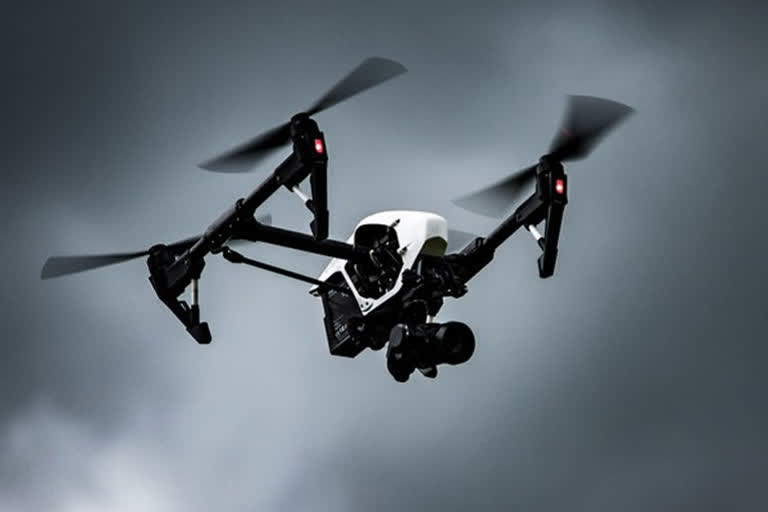Hyderabad: Unmanned aerial vehicles, commonly known as drones are posing serious threats to security. The drone attack on Saudi Arabia’s oil refineries shocked the world. More recently, Pakistan drones dropped rifles and ammunition in Punjab. In the current scenario where anti-social elements are armed with the latest technological advances, how nations would protect their territories is a million-dollar question.
Armed forces are the biggest consumers of drones. But the usage of drones among citizens is also on the rise. Common people are using drones to film documentaries, weddings, and other ceremonies.
It is estimated that India has about 6,00,000 rogue drones. Worldwide, the drone market is expected to reach USD 2200 crores by 2021. The Indian drone industry is estimated to grow to USD 88.6 crores.
Though the governments have employed radar systems to keep rogue drones in check, there is a failure in effective detection. Attacks of oil refineries in Saudi Arabia and information theft in the USA through drones point towards poor safety measures.
There are complaints that China is collecting information illegally with the help of several specially manufactured drones. Since the Chinese drones are cheaply priced, the demand has gone up. Around 70 percent of the drones used worldwide are made in China.
In India, the usage of drones is limited to private occasions only. Drones can be employed only in filming documentaries and conducting government surveys.
Last December, Directorate General of Civil Aviation (DGCA) has made modifications to this rule. It is also considering the possibility of expanding the Beyond Visual Line of Sight (BVLOS) of commercial drones.
By utilizing drones to spray pesticides, ill effects on farmers’ health can be reduced. Drones can be used to carry medicines and basic supplies to several places during emergencies. The survey of India signed an MoU with the government of Maharashtra for mapping 40,000 villages in the state. Andhra Pradesh and Telangana are frontrunners in utilizing drones by establishing Drone Corporation and the Drone City of Telangana respectively.
About 50 startups in the country carry out drone-based research. DGCA initiated Digital Sky keeping in view the importance of drones. Permissions were made compulsory to control lakhs of drones. Although common citizens must take a permit to use drones, very few of them are following the rules. For drones weighing under 250 grams and flying within 50 meters, no permit is needed.
There is a chance of terrorist groups attacking nations by entering their airspaces. Though it is possible to take down rogue drones, it is an extremely costly affair. That is why counter-drone technology is employed only during important occasions like Republic day celebrations, public meetings of leaders and international conferences.
There are hundreds of organizations that manufacture drones but only a handful of them abide by DGCA regulations. There are no systems to monitor imported drones. There are not sufficient trained drone pilots though some private institutions provide training programs.
The government of India has launched drone pilot courses in several cities including Hyderabad with the help of the National Skill Training Institute (NSTI). In high-density areas, drones pose several risks to citizens. By using drones under the guise of documentaries and ceremonies, privacy is put at stake. Taking the issue of safety into consideration, strict guidelines must be formulated.
Also read: Fake degrees on the rise, sturdy action yet to be taken



